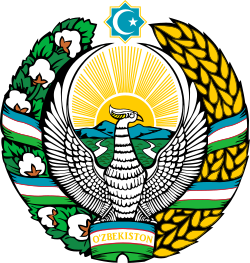Zuhal OLMEZ
 |
Zuhal OLMEZ Contacts |
Research area
Old Turkic Language and Dialects, Historical Development of Turkic Languages, Comparative Phonology and Morphology, Epigraphy and Manuscript Studies,Oghuz Literature and Oğuzname
1. Publications on Karakhanid, Khwarezmian, and Old Turkic Languages
Professor Ölmez's research focuses on early Turkic languages, particularly Karakhanid and Khwarezmian—two important dialects from the medieval period. These languages are key for understanding how Turkic languages evolved in the context of interactions with Persian and Arabic cultures, especially during the Islamic period.
In her work, she extensively analyzes the grammar, vocabulary, and morphological structures of these languages. She delves into the unique linguistic features of Old Turkic languages, tracing how Turkic language structures have transformed through historical periods. Her analysis often focuses on:
Phonological shifts in Old Turkic.The development of Turkic morphology.How Arabic and Persian influences shaped Turkic languages, especially in administrative and religious vocabulary.
2. Contributions to Turkic Phonology and Morphology
Professor Ölmez’s comparative studies have shed light on the development of phonology (the sound system of languages) and morphology (how words are formed) in Turkic languages. Her research:
- Maps phonetic shifts across different Turkic dialects, with a focus on Central Asian Turkic languages, including Chagatai and Uighur.Compares morphological structures such as verb conjugations, noun declensions, and suffix usage across Turkic languages, helping to explain how these systems evolved over time.
- Explores linguistic change due to contact with neighboring languages, particularly in regions where Turkic languages intersected with Iranian and Arabic influences.Her comparative studies are crucial in understanding how Turkic languages share common roots yet have diverged significantly due to historical, cultural, and geographical factors.
3. Authored Papers
a) "Ebulgazi’ye Göre Oğuz Boylarının Damgaları ve Kuşları"
This paper investigates the tribal symbols (damga) and sacred birds of the Oğuz Turks, based on the works of Ebulgazi Bahadur Khan, a prominent historical figure who chronicled the Oghuz Turks. In this study, Professor Ölmez examines the symbolism behind tribal emblems and birds, which were not only markers of identity but also held spiritual and cultural significance in Turkic nomadic life. This paper provides:
Insights into tribal structures of Oghuz Turks.
Symbolic interpretations of animal motifs.
A linguistic perspective on how these symbols were embedded in the Turkic oral tradition.
b) "Oğuznâme Rivayetleri Üzerine Karşılaştırılmalı Bir Çalışma"
This comparative study examines different versions of the Oğuznâme, a collection of oral legends central to Oghuz Turkic history. These narratives recount the heroic deeds of Oghuz Khan and his descendants. Professor Ölmez:
Compares various manuscripts of Oğuznâme from different regions.Analyzes linguistic variations and changes in the oral traditions as they transitioned into written form.Explores the historical context and the role of these epics in shaping Turkic identity.Her analysis helps scholars understand how oral history was preserved and transformed in the transition from oral to written Turkic literature.
c) "Karahanlı Türkçesinin Dilbilgisi Üzerine Notlar"
This study delves into the grammar of Karakhanid Turkish, one of the earliest documented forms of written Turkish, used during the Karakhanid dynasty. Karakhanid Turkish is pivotal in Turkic linguistic history as it marks the transition from Old Turkic to Middle Turkic. In this work, Professor Ölmez:
Breaks down the grammatical structure of Karakhanid Turkish, with a focus on syntax and verb conjugations.Highlights unique morphological features that distinguish it from other Turkic languages of the period.Provides insights into how Islamic influence during the Karakhanid era affected the language, especially in terms of religious and administrative vocabulary.
4. Broader Impact on Linguistic Evolution
Through her body of work, Professor Ölmez has significantly contributed to the understanding of how Turkic languages evolved. Her research into Turkic epigraphy (the study of ancient inscriptions) has provided new insights into the cultural and social contexts of early Turkic-speaking peoples. Additionally, her linguistic analyses of historical texts offer critical perspectives on:
The evolution of Turkish grammar and vocabulary from Old Turkic to modern Turkish.
The role of Turkic oral traditions in shaping Turkic literature.
How linguistic changes reflect cultural and political shifts within the Turkic world, particularly through interactions with Persian and Arabic-speaking societies.
1. "Ebulgazi’ye Göre Oğuz Boylarının Damgaları ve Kuşları"
This publication focuses on the Oghuz Turks, examining their tribal symbols (damgalar) and birds as per the works of Ebulgazi Bahadur. It explores the cultural and symbolic aspects of the Oghuz clans in historical texts.
2. "Oğuznâme Rivayetleri Üzerine Karşılaştırılmalı Bir Çalışma"
This paper provides a comparative study of the Oğuznâme narratives, which are central to Turkic literature. It highlights variations in the oral tradition and its transformation into written forms.
3. "Karahanlı Türkçesinin Dilbilgisi Üzerine Notlar"
A detailed analysis of the grammar of Karakhanid Turkish, one of the earliest recorded Turkic languages. The study includes linguistic features, morphology, and syntax of Karakhanid inscriptions.
These publications emphasize historical linguistics, with a focus on the Old Turkic language, its development, and its role in shaping Turkic identity.
Professor Zuhal Ölmez is actively involved in teaching at Yıldız Technical University, primarily in the Turkish Language and Literature Department. Her teaching activities focus on:
1. Old Turkic Language Courses
She conducts courses on Old Turkic dialects, focusing on the linguistic structure, grammar, and phonology of early Turkic languages like Karakhanid, Khwarezmian, and Chagatai.
2. Historical Linguistics
She teaches classes on the evolution of Turkic languages, guiding students through the historical development of the Turkic language family and its interaction with neighboring languages such as Persian and Arabic.
3. Comparative Turkic Linguistics
Her courses include comparative analysis of phonology and morphology across different Turkic languages, helping students understand the similarities and distinctions among these languages over time.
4. Graduate Supervision
Professor Ölmez supervises master's and PhD students, particularly those working on topics related to Old Turkish epics, manuscripts, and Turkic historical texts.
Her teaching contributes to shaping a deep understanding of Turkic historical language studies for her students.




